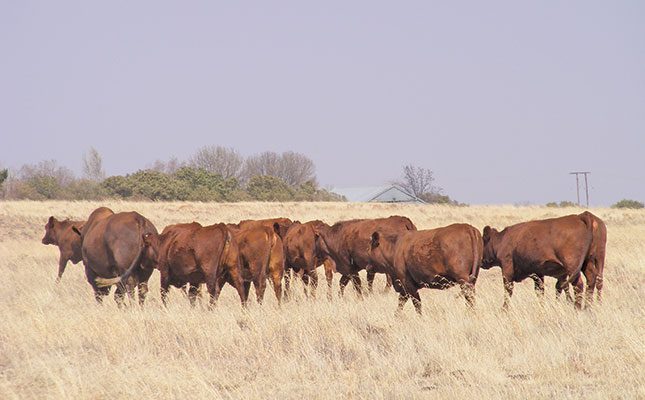
This marks the first such export since the 2021 outbreak of foot-and-mouth disease (FMD) in the country halted all international trade in South African livestock genetic material.
This breakthrough follows months of collaboration between the National Genetic Export Advisory Committee (NGEAC), a subcommittee of the Red Meat Producers’ Organisation (RPO), and the Directorate of Animal Health within the Department of Agriculture.
READ Renewed interest in egg yolk antibodies
Paraguay’s National Service for Animal Quality and Health worked with South African officials to finalise the necessary animal health certificates.
“Although finalising these processes takes time, we are starting to reap the rewards of the committee’s hard work under the leadership of Dr Pierre van Rooyen,” Dr Frikkie Maré, CEO of the RPO, said in a press release. “The organisation is very satisfied with the outcome of the work done by the NGEAC.”
In May 2023, a group of Paraguayan Bonsmara breeders, in collaboration agricultural company Bella Alianza Agronegocios, visited South Africa. Their aim was to select donor cows to improve their own herds.
After an intensive evaluation of performance data, pedigrees, and phenotypic traits, a group of donor cows was flushed using male sex-sorted semen. The embryos, destined to establish superior bull lines, were exported to Asunción, the capital of Paraguay, on 17 June 2025.
Van Rooyen, chairperson of the NGEAC and former general manager of SA Stud Book, said the demand for South African livestock genetics remained strong, despite the recent setbacks.
“Genetic material from our indigenous breeds in particular is in high demand. Some of our neighbouring countries depend on our superior genetics, and there is also considerable interest from Eastern Europe, South America, Australia, and New Zealand,” he explained.
He stressed that the 2021 FMD outbreak brought all export discussions to a standstill: “The RPO established the NGEAC to assist government with the formulation of new protocols to make the export of genetic material possible again. This is an extremely complex and laborious process.
“At this stage, we are focusing solely on securing approval for the export of semen and embryos. The importing country sets its own animal health requirements, and our Directorate of Animal Health must then provide proof that South Africa can meet those standards.”
Van Rooyen added that the entire process was funded by the livestock industry, with the RPO managing the operational aspects, and Red Meat Industry Services (RMIS) controlling the financial side.
When the NGEAC was formed in 2023, it decided to initially focus on countries that already had import protocols in place. Apart from Paraguay, the other countries that remain a priority are Brazil, Argentina, Armenia, Namibia, and Botswana.
According to Van Rooyen, cattle producers in Paraguay believed the Bonsmara, in particular, was the ideal breed with which to improve the production potential of their own cattle.
“They started putting pressure on their own government to speed up the process so they could begin importing our genetic material. That is why Paraguay is the first country to which we have now resumed genetic exports. We hope and believe this breakthrough will be the first of many such success stories,” he said.
Van Rooyen concluded that exporting the more than 300 in vivo cattle embryos to Paraguay had far-reaching implications.
“Firstly, it is good business for stud breeders and brings foreign exchange into the country. Moreover, it keeps our local breeders on their toes to continue the excellent work being done to sustainably improve and supply the highly sought-after, superior genetics we have in South Africa,” he explained.
Get trusted farming news from Farmers Weekly in Google Top Stories.
➕ Add Farmers Weekly to Google ✔ Takes 10 seconds · ✔ Remove anytime






